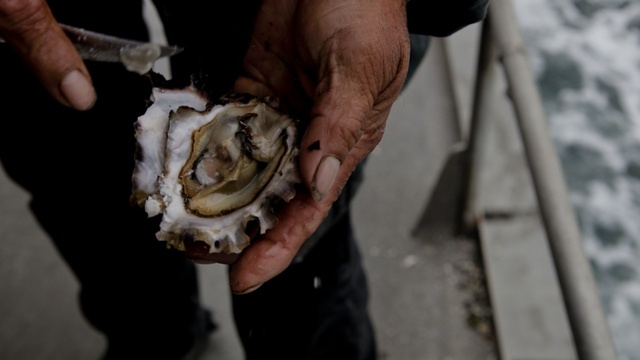By Ronald Huber | Jan 13, 2014 The Republican Journal
 It was standing room only at the Maine Legislature’s Marine Resources Committee as supporters of LD 1602 the “Save Our Shellfish” bill, made their case for appointing of a coastwide multisector committee to study how to reduce the impact of oceanic acidification on Maine species and what proactively to do, fishery by fishery.
It was standing room only at the Maine Legislature’s Marine Resources Committee as supporters of LD 1602 the “Save Our Shellfish” bill, made their case for appointing of a coastwide multisector committee to study how to reduce the impact of oceanic acidification on Maine species and what proactively to do, fishery by fishery.
Not only were clammers, shellfish farmers and the scientific community evident, The groundfish industry called for the scope to be broadened to consider all Maine marine species from plankton up. A wastewater management too was represented, and a wide spectrum of Maine ENGOs weighed in as well.
The bill’s full title is Resolve, Establishing the Commission To Study the Effects of Ocean Acidification and Its Potential Effects on Commercial Shellfish Harvested and Grown along the Maine Coast“
In addition to bill sponsor Mick Devin, and DMR Commissioner Pat Keliher, fifteen members of the public and interest groups testified.
Senator Chris Johnson, committee co-chair, gave the introduction to the public hearing (mp3)
Representative Mick Devin Sponsor laid out the case for LD 1602 spending time money and energy getting up to speed on the impact acidification is having on maine marine and estuarine species.
DMR Commissioner Pat Keliher followed, calling for achievable outcomes, not only another report – bottom line is produce something that will help Maine. (3minutes)
Suzy Arnold of Island Institute spoke next. She noted that the pH of some Gulf of Maine waters is 30% lower than it was (4min 9sec). If our blood went that that much lower we’d be in a coma, Arnold said. The increased acidity is dissolving shells of baby shellfish. Critical prey like zooplankton are affected too. Crabs seem okay but have thicker shells and slower growth. The California rockfish and other fish exhibit confusion & anxiety when acidified on the west coast.
Arnold said that compared to bivalves, nothing known about lobster acidification. This must be a priority. She said Seagrant & Cooperative extension agreed. She noted that there will be a daylong meeting Thursday in Augusta to ID priorities, and that all are welcome.



